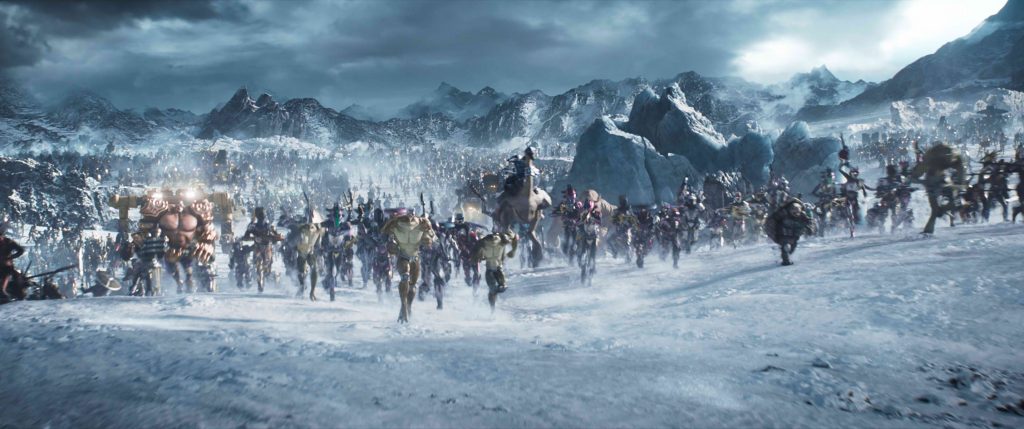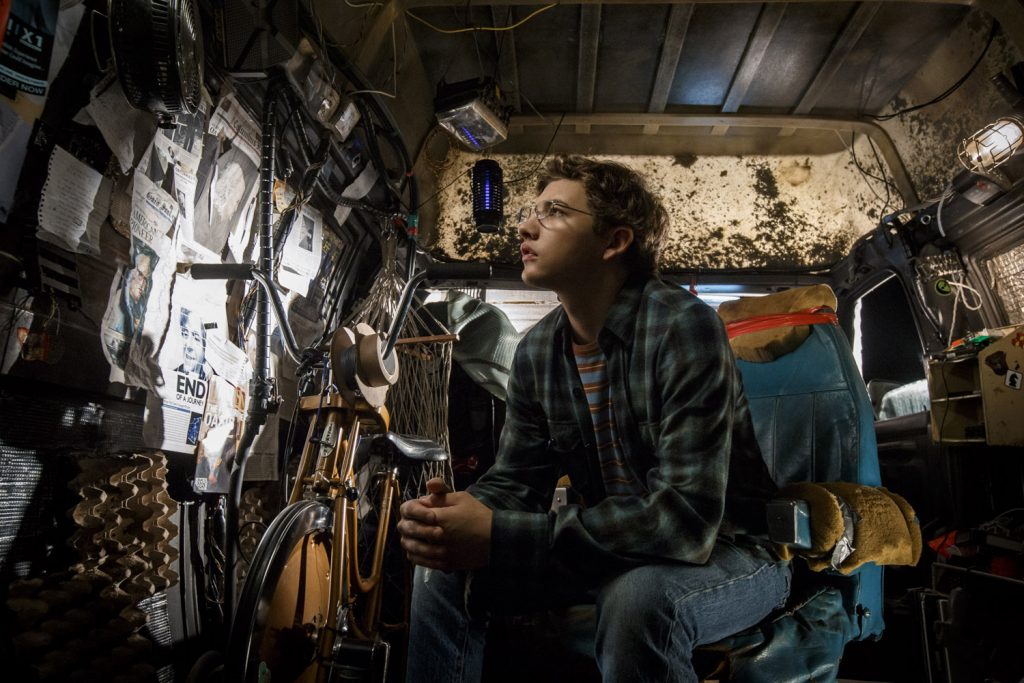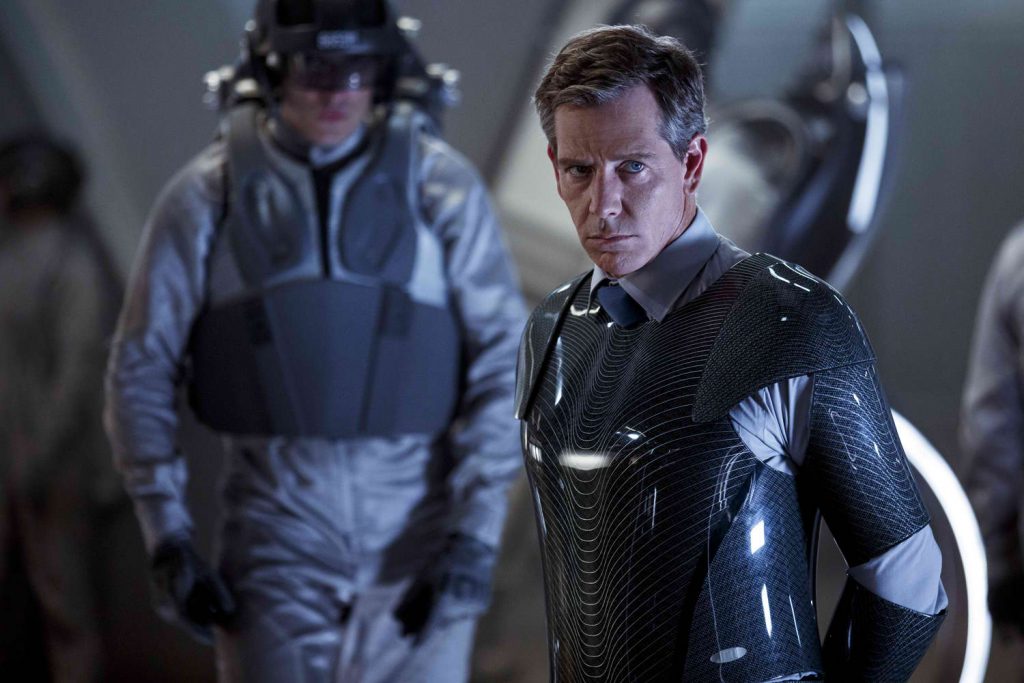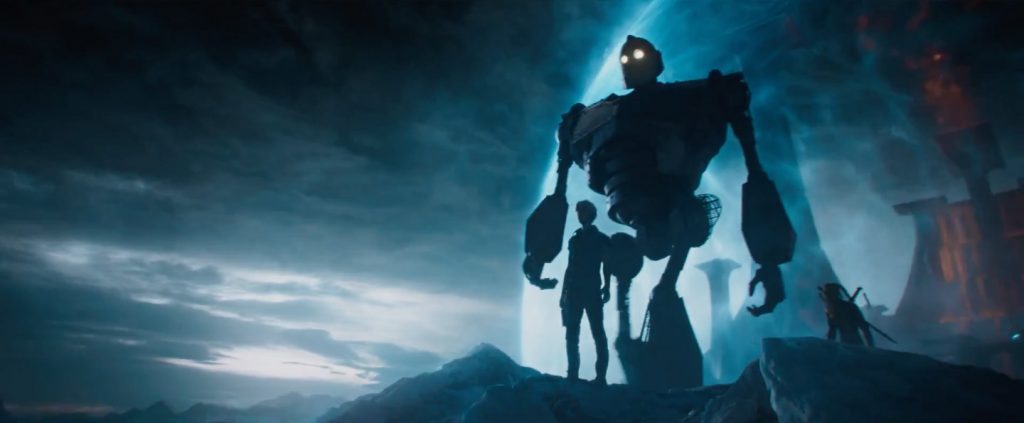Ernest Cline sits down with us to talk about Ready Player One, video games, and general geekery in this Ungeek Exclusive!
Oozing with geeky goodness!
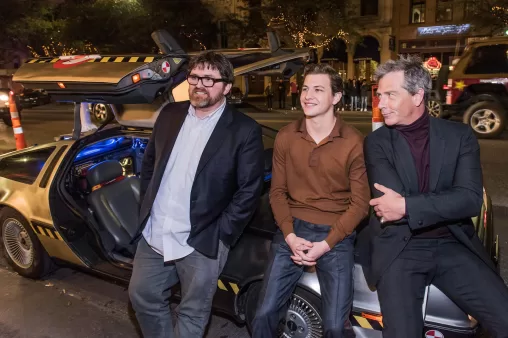
This weekend has been a long time coming for some. In the middle of the Holy Week activities, 2 great movies are now showing in the form of Pacific Rim Uprising and Ready Player One. Both movies are highly entertaining and are worth your time, so when we got the chance to talk to the man himself in Ernest Cline, we just had to take the leap into the OASIS with him! Come join us in this highly entertaining discussion about the movie, working with Spielberg, and predicting the future!
‘Ready Player One’ author Ernest Cline talks about working with his idol, what makes the ’80s the coolest decade, and predicting the future using science fiction
It had been three weeks since Ernest Cline was told that Steven Spielberg was interested in directing the movie adaptation of his cult favorite novel, Ready Player One. He was nervous, afraid that one of his dream Hollywood collaborations would never be a reality.
“I got really depressed because I assumed it was never going to happen,” Cline, 45, laughingly told Ungeek during an exclusive telephone interview. “I thought maybe I would spend the rest of my life wondering what it would’ve been like if he had directed it.”
But then after about two or three weeks of nervous waiting, Cline was told that Spielberg was a go. So what did he do?
“I kind of just freaked out! I listened to a bunch of John Williams scores of Spielberg’s movies and I drove around in my DeLorean to celebrate,” shared Cline. “I’m still celebrating now, three years later.”
As a teenager in the ’80s, it was a dream come true for Cline to work with the Steven Spielberg. Read on to find out what the experience was like and how it has inspired him! Cline also shared with us his thoughts on the glorious ’80s (particularly why he thinks there’s been a lot of reboots and remakes lately), why he loves science fiction, the evolution of video games, and being a parent to a kid who’s exposed to so many more video games than when he was himself a kid.
How was it working with Steven Spielberg?
It was the best experience of my life. He’s so kind to his collaborators and his fellow filmmakers, especially the writers. And he’s such a big fan of my book, and he was generous to me during the development of the movie and he made sure to include me in the entire process whenever we needed to make changes for the film adaptation.
Did working with him inspire you to direct your own movie someday?
He has always inspired me to want to try to direct my own film someday, but he also set the bar really high. Watching him do it was definitely educational, but also intimidating. Still, it is something I might try someday. He has always made me want to be a filmmaker.
Of all the genres that you can write about, what is it about science fiction that drew you in?
I’ve always been a fan of science fiction, from the time I was very young watching Star Wars when I was 5 years old, it was a big life-changing experience for me that made me want to make movies, but it also got me interested in reading science fiction. There’s just something I love about it. I used to enjoy fantasy when I was younger, but the older I got, it was just easier for me to suspend my disbelief with science fiction, because it’s, you know, technology is like magic that really works. Any significantly advanced technology is indistinguishable from magic. I love telling fantastic stories with science fiction because, for me, it’s possible.
You obviously love the ’80s. What do you think is the most important contribution of the ’80s to pop culture?
Well, the ’80s made a huge contribution to pop culture in, I think, three different ways. One is it was a golden age for cinema and a certain kind of fun, family-friendly action adventure cinema, when we got the Indiana Jones movies, the Back to the Future films, but also amazing science fiction films like Blade Runner and The Thing, and also fun, family-friendly movies like The Goonies. A lot of these movies even Spielberg was involved in, so I think that’s one reason it was a very special time in cinema, and that’s why now, thirty years later, there’s a lot of reboots and remakes of products in the ’80s. It was such a unique and original time and the entertainment industry is trying to recapture it.
The other important contribution of the ’80s was video games. It was kind of the golden age of video games and it was when most people got their very first home video game console.
And the other thing is home computers and, kind of, the birth of the Internet, it all happened in the 1980s. I feel like the ’80s is really the decade where we started this new era that we’re still living in now, the technology, the Information Age, it all began in the 1980s.
Did you ever think that the Internet would grow so big so fast?
No. I never really even kind of foresaw the Internet. I remember the first time I dialed out over a modem, from a computer to connect to another computer. That was in the ’80s, and it was just astounding to me because it was like you could project yourself over the phone line and communicate with people far away. And then in the mid-’90s, when the Internet kind of came about, I was astounded by it but also fascinated by it. My first real job as an adult was working with computers and doing web design and technical writing and tech support, and working with the Internet every day and helping people use the Internet and it was just amazing to watch the Internet evolve, you know, from something that very few people knew about to something that everybody was using every minute of every day. Between 1995 and 2005, that happened. Suddenly everybody had a small handheld computer that they had in their pocket, and kept tethered to the Internet every minute of every day, whereas like a decade before, most people couldn’t even send an email. So it was astounding to watch it evolve in just a decade, that fast, and then in the subsequent decade, it’s become, you know, kind of the infrastructure of our whole civilization now, dependent upon the Internet, so many facets of our daily life. It was really fascinating to see the way that that particular technology has changed the whole world.
Video games have also evolved pretty big over the years. It used to be that they were games played by kids, but now they’re so much more than that. Everybody plays video games, they’ve become inspirations for pop culture, and they’re even sometimes a form of social commentary. Why do you think video games have grown as much as they have?
It’s amazing to watch video games evolve both technologically and from a storytelling standpoint. Early video games were so primitive that it was not that easy to tell a story with video games. But now, video games have evolved to the point where they’re photorealistic. A lot of games, you look at them, at first glance it’s hard to tell whether you are looking at a filmed image or something that’s computer-generated. For example, playing a football game now is like watching a real-life game of football but you have control of the characters. It’s astounding to watch video games evolve from Space Invaders and Pac-Man and what they were when I was a kid, to now when we are at the dawn of virtual reality, you know, video games that wrap all the way around your senses, video games that cover your eyes and your ears and project you into a whole other reality.
Sometimes when people get nostalgic – even though they do enjoy the sophistication of technology and the connectivity of everything these days – they wish for the simplicity of the past. With regards to old video games, do you sometimes wish that maybe we could go back for a day to the simplicity of how video games were before?
[Pauses to think] Hmm… that’s interesting. I’m so happy with the way things are in my present that I would never travel into the past and risk changing everything. That’s why time travel seems very dangerous to me. If you’re happy with your life, traveling into the past seems very dangerous because you can kind of just undo everything. So… I’m nostalgic of the past, but I don’t necessarily want to travel to the past.
Ready Player One was ahead of its time. What was your inspiration behind it?
I’ve always dreamed of virtual reality, and I’d read a lot of science fiction novels about virtual reality that really inspired my imagination on the subject, books like Neuromancer by William Gibson, Snow Crash by Neal Stephenson. But I was also inspired by portrayals of virtual reality in the movies, like Brainstorm with Christopher Walken, and Strange Days, which was directed by Kathryn Bigelow, movies like that that really kind of explore the potential, benefits, and pitfalls of virtual reality.
In the ’90s, I had sampled some early virtual reality games, like the game called Dactyl Nightmare, that was a very early, very crude virtual reality with a giant headset. But even playing that, I could see the potential of what it would be like once the graphics got better and the headsets got smaller. That took about 20 years to happen but now it’s finally just happened. This past Christmas, I think, was the first Christmas when we had multiple virtual reality headsets, three of four different brands available. And the Christmas before was the very first Christmas when virtual reality was available to regular consumers. The technology is evolving much faster than I predict in my novel, which is set 30 years from now.
Do you think it’s scary how fast the future seems to be coming as envisioned by science fiction writers?
It’s a little scary, and it’s a little exhilarating at the same time. I feel like technology is just another tool that human civilization has crafted. In 200 years, we’ve gone from horse-drawn buggies to Lamborghinis and helicopters and airplanes. Our whole civilization, seven billion of us on the planet, we could not survive without technology. So we’re dependent on technology and also a little afraid of it, I think, because it’s something new in our experience. Human beings are not evolved to live like we do now, we haven’t had time to evolve, to adapt to the changes from our technology. We’re still evolved from the hunter-gatherers so we still have a lot of those residual instincts even though we live in the cities, ride on trains, and fly airplanes. Technology is always a little frightening, but it’s also really beneficial, like anything that humans create, it can be positive or negative depending on how we apply it.
In an interview you did a few years ago, you said, “It’s a great time to be a science fiction writer, but also dangerous if you’re trying to imagine the future.” By “dangerous,” do you mean that it all becomes like a self-fulfilling prophecy?
Well, that a little bit. Being a science fiction writer can be a self-fulfilling prophecy. I feel like so many people who are responsible for bringing about this new age of virtual reality have told me personally that my book helped inspire them to do that. The creators of the Oculus Rift and HTC Vive have told me that they hand out copies of Ready Player One to their employees to help inspire them to work on virtual reality. It’s very flattering but also frightening [laughs] because not everything that I predict about virtual reality is positive, and already people escape into video games and escape into the Internet to kind of live an alternate life that is primarily electronic and don’t take part in the real world. I think virtual reality and video games, and escapism in general, can be like a drug for some people and I think it’s something everybody needs in their life, but it’s also subject to excess. The dangerous thing about predicting the future when you’re a science fiction writer is that the more detail you go into, the greater the possibility that you end up being wrong about the timing [laughs]. Like the flying cars in Back to the Future and Blade Runner, we still don’t have them. So we’d watch these movies now and they depict kind of an alternate future where things advance more rapidly at least in that area. So it’s tricky predicting the future; you have to be careful.
So the danger is more about the timing, and not so much about the gloom-and-doom that some science fiction writings affect some people?
No. In my writing I always try to celebrate technology and the way that technology brings people together. I love technology and the way that it improves our lives. But like anything, it can be done to excess or it can have negative effects.
We found another interesting quote from you: “The human condition is by itself very painful. Becoming aware of your own immortality informs the rest of your life.” In that vein… if you could live forever, would you?
[Laughs] Probably not. I’m a big fan of the movie Highlander, which is all about immortals and the perils of immortality. I think I would only want to live forever if all of my loved ones could also live forever. If you’re the only one who’s immortal, then you’d have to watch your loved ones grow old and die, so I’ll pass on that [laughs].
Knowing that you’re going to die and being aware of your own immortality is a profound thing but I don’t think it’s negative. It’s one of the things that give our lives meaning, knowing that you don’t have a finite amount of time and you have to make the best of it.
As with any kid who grew up in the ’80s, your parents must’ve had quite some things to say about your video-gaming. Being a parent yourself now, how do you plan to balance things out with your own kid in terms of playing video games, using the Internet, and being online?
It’s tricky. My parents, I think they were afraid of me playing too many video games, just because I was the first generation every to have video games, so there was no real data on how it would affect me in the long term. But now, having played video games my entire life, and that I owe my whole livelihood to my love and passion for video games, telling my daughter that video games are bad or that she shouldn’t play them too much seems hypocritical to me [laughs]. And my daughter, she’s grown up surrounded by video games. But she still has to finish her homework [laughs]. I mean, she has her own free time that she can spend playing video games, if she wants. We play video games together, it’s part of our family time. I think video games are wonderful, no different from playing board games with your family, except it’s more fun [laughs].
Interviewing Ernest Cline was a humbling experience, but it was awesome to know that someone like him is equally or even more geeky than we are! We love the fact that he plays video games as well, so we’re all in with him being our player one!
If you are not sold on the geeky masterpiece that is Ready Player One, check out our spoiler free review and dive into the OASIS as Cline and Spielberg treat us to a movie that is, in more ways than one, “one for the books”! Ready Player One is now showing in cinemas nationwide, only from Warner Bros.!




